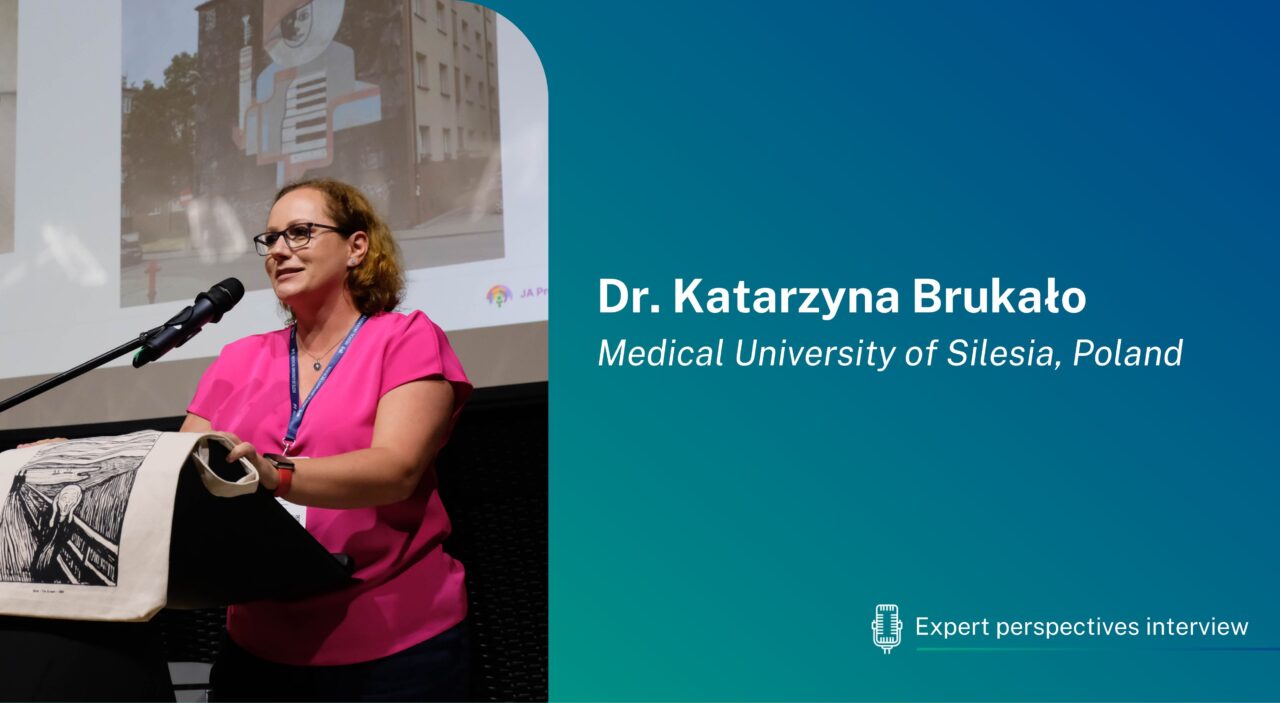27 August 2025
Ágnes Makai - GOKVI
Katarzyna Brukało is an Assistant Professor at the Faculty of Public Health, Medical University of Silesia (SUM) in Katowice, Poland. She is a public health and dietetics specialist with over 15 years of academic and research experience. Her current work focuses on innovative approaches to NCD prevention, health promotion, and evidence-based policy. She is actively involved in EU and WHO projects such as JAHEE, Best Re-MaP, Health4EUkids, JACARDI, and JA PreventNCD.
You lead 15 very diverse pilot projects in JA PreventNCD, all centered around the concept of healthy living environments. Why is working at the local level so important, and what impact do you hope these pilots will have?
Our work package is very broad, because we have 15 pilot projects that are all very different. For example, we are adapting breastfeeding best practices from our Norwegian partners and implementing them in Greece. These are two very different contexts, with different conditions, and we also have pilots that promote drinking tap water, among many other activities.
What’s important is that all of these are implemented at the local level. This means we are close to the communities, close to the citizens, and that’s where we can make the biggest impact. Local governments and local structures have real power, and when we use this effectively, we can build on this work to make an impact on national policies as well. It’s like a puzzle: each pilot is one piece, and together they create the bigger picture.
Looking at the bigger picture, what is your dream result at the end of this project journey?
Our vision is not that Norway should become like Greece, or Greece like Norway. Instead, the real goal is that we learn from one another, build a good professional relationship with the facilitators, understand each other’s barriers, and use this knowledge to build responsible, community-based public health initiatives based on peer learning.
SUM University is also active in JACARDI. How do JACARDI and Prevent NCDs complement each other, and what added value do they bring when combined?
It’s very valuable that we are part of both Joint Actions, which we often call sister actions. JACARDI focuses mainly on cardiovascular diseases and type 2 diabetes, while Prevent NCDs addresses non-communicable diseases more broadly, including cancer.
Together, they allow us to tackle the full spectrum of non-communicable diseases. Only by acting together can we make a real impact, not just at the national level but also internationally.
You are known as an engaging communicator. How would you inspire others to make public health messages resonate?
For me, the key in communicating about public health is to be clear and responsible. We need to stand behind every word we say, because mistakes can lead to misinformation or even fuel fake news.
It’s also important to stay open to discussion, even engage in difficult debates and tough questions. Hard questions mean people are listening, reflecting, and engaging with what we say. That is, after all, why it is called public health, because it is for the public, and it must involve the public. Communication is central to this: raising awareness, building health literacy, and empowering people to understand their options.
About the JACARDI & JA PreventNCD collaboration:
The two projects are part of a broader network of European Union initiatives aimed at tackling non-communicable diseases (NCDs) and promoting public health. They work together to share knowledge, strategies, and resources, thereby amplifying their impact across the EU. By harnessing the synergies of these collaborative efforts, we can enhance the effectiveness of our initiatives, ensuring a more comprehensive approach to NCD prevention-and management, as well as health promotion.Explore more about the work of PreventNCDs here.
